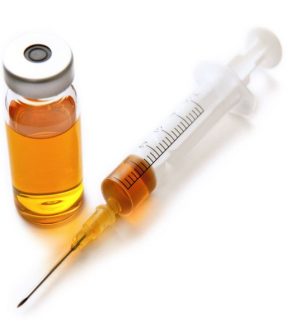- Could Your Grocery Store Meat Be Causing Recurring UTIs?
- Are You Making This Expensive Thermostat Error This Winter?
- Recognizing the Signs of Hypothyroidism
- 10 Strategies to Overcome Insomnia
- Could Artificial Sweeteners Be Aging the Brain Faster?
- Techniques for Soothing Your Nervous System
- Does the Water in Your House Smell Funny? Here’s Why
- Can a Daily Dose of Apple Cider Vinegar Actually Aid Weight Loss?
- 6 Health Beverages That Can Actually Spike Your Blood Sugar
- Treatment Options for Social Anxiety Disorder
No Link Between HPV Vaccine, Autoimmune Diseases: Study

Immunizing girls against human papillomavirus (HPV) doesn’t increase their risk for autoimmune diseases, according to new research from Canada.
HPV is the world’s most common sexually transmitted disease, affecting up to 75 percent of sexually active people and is the main cause of cervical cancer. Gardisil, the quadrivalent HPV4 vaccine, protects against up to 90 percent of strains that cause cervical and rectal cancer.
“Despite demonstrated effectiveness in real-world settings, concerns continue to persist regarding the safety of the HPV4 vaccine,” said lead study author Dr. Jeffrey Kwong. He’s a senior scientist at the Institute for Clinical Evaluative Sciences in Toronto and at Public Health Ontario.
“In light of these concerns, we wanted to study the HPV4 vaccination since it was being offered free to all grade 8 girls in Ontario through school-based clinics,” Kwong added.
To see if the vaccine triggered autoimmune conditions such lupus, rheumatoid arthritis, type 1 diabetes and multiple sclerosis, Kwong’s team reviewed data on 210,000 girls aged 12 to 17 who were eligible for vaccination between 2007 and 2013.
Of nearly 181,000 girls who were vaccinated, about 680 were diagnosed with an autoimmune disease between one week and two months later.
The researchers said this rate is consistent with the rate of diagnosed cases among all girls in this age group.
The report was published May 28 in the Canadian Medical Association Journal.
“These findings add to the body of evidence on the safety of the HPV4 vaccine and should reassure parents and health care providers,” study co-author Linda Levesque said in a journal news release. Levesque is on the pharmacy faculty at the University of Toronto.
More information
Learn more about HPV vaccine from the U.S. National Cancer Institute.
Source: HealthDay
Copyright © 2026 HealthDay. All rights reserved.










